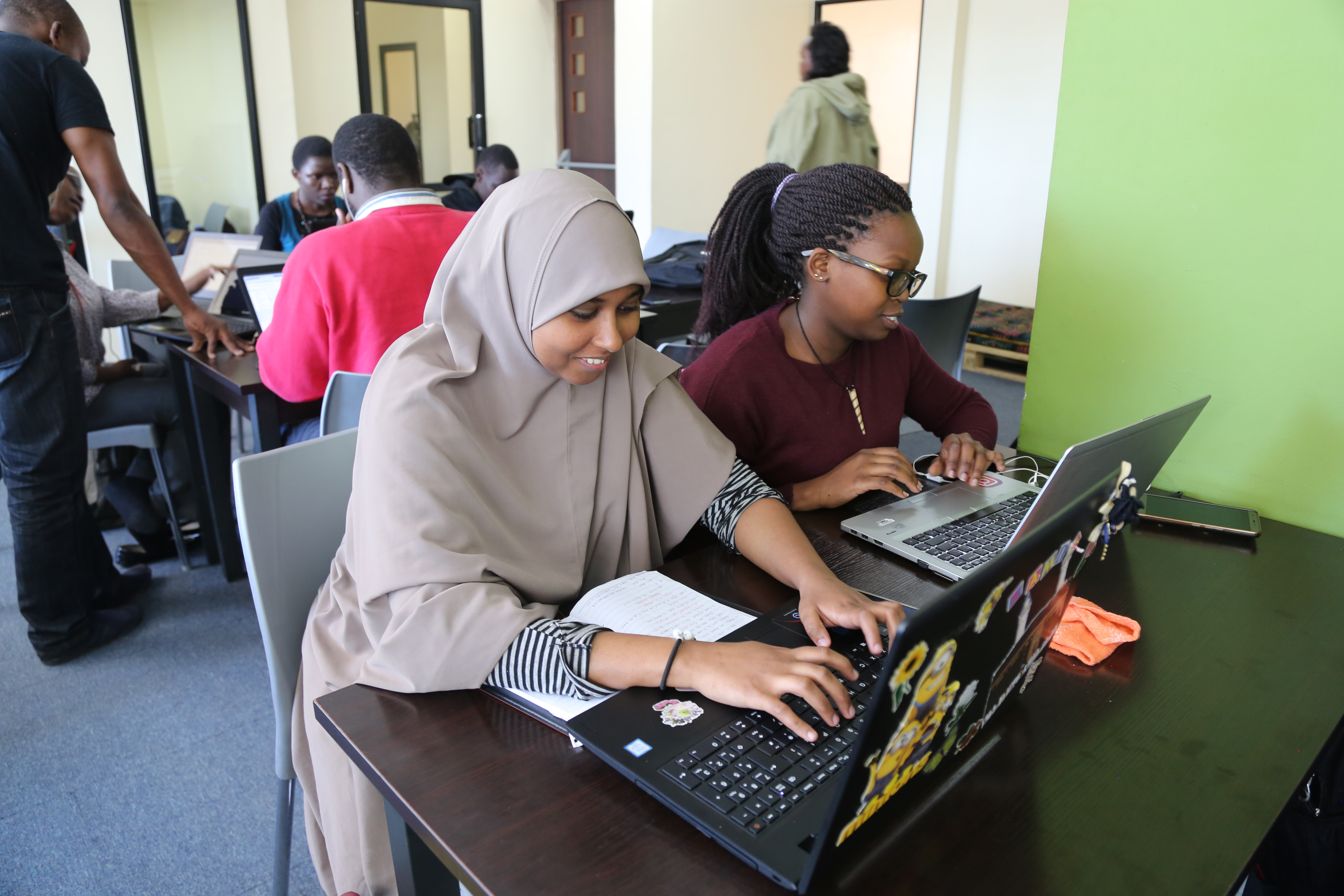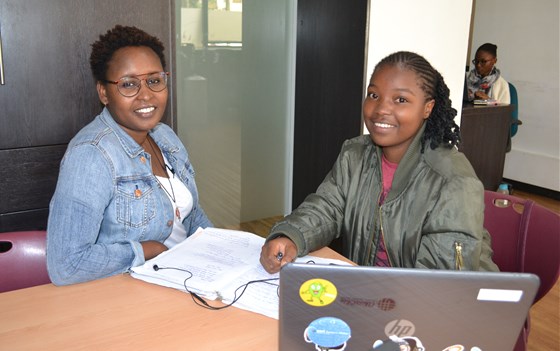
NAIROBI, Kenya — Africa has recently been a launchpad for new technology developments. But as progress is being made, advancement for African women in the industry is still lacking. Judith Owigar, 32, saw this firsthand and decided to help other young women have a chance.
When Owigar attended college in Nairobi, she was one of a few women in her technology classes. This motivated her to pursue her passion for technology and she created her first business seven years ago.
She successfully launched the nonprofit Akirachix with Angela Lungati, Linda Kamau, and Marie Githinji in 2010. For one year, 30 girls learn software and coding programs and explore graphic design as well as app development. The program focuses on recruiting girls from low-income areas that may not have the opportunity to pursue an education beyond high school.
“How do we increase the pipeline of women entering the field of technology? So one of the things we realized is, number one, we need to have more women thinking and deciding to do technology careers," said Owigar.
For Marline Khavene, 19, Akirachix has been life-changing. Khavene wants to pursue a career in coding and become a software engineer, but could not afford the cost of a university. "My biggest dream is to work at Google. But right now, I want to just go step by step, " she said. "But I know I will reach there.”
The pipeline Akirachix is creating is critical to the emerging technology sector in Kenya. Nearly 40 miles outside of Nairobi, a smart city is slowly being constructed. The Konza City Tech Center is being built on land the government calls Kenya’s "Silicon Savannah."
“We expect Konza to be a mixture of local, regional and global institutions and hopefully we get a mixture of research institutions and institutions of higher learning,” said Victor Kyalo, principal secretary in Kenya’s Ministry of Information, Communications and Technology (ICT). “Local businesses and international businesses can come together and maybe create [an] ecosystem that can come up with some new things towards technology.”
Though the project started in 2012, the goal is to officially open its doors in 2030.
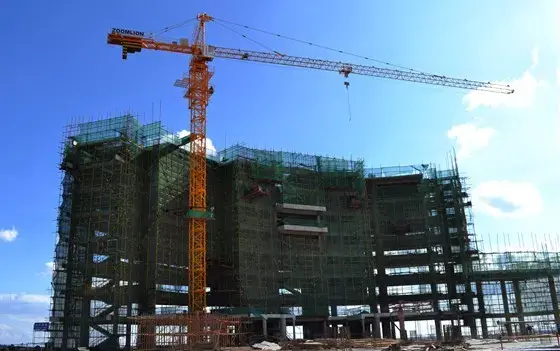
“There is huge potential in this part of the world,” explains Bitange Ndemo, 57, a professor at the University of Nairobi who helped develop the Konza idea. “I see so many very competitive ideas but they lack the funding. Africa has the greatest potential because we have the most problems and the opportunity comes from problems. If you can work any opportunity into a solution, create a solution for any problem, you are there.”
Kenya has a history of being a launch pad for tech innovation in Africa. In 2009, infrastructure shifted in the country when broadband became more accessible for people in both the cities and the villages. Mobile penetration in the country is now at 88 percent. A decade ago, the mobile money transfer system, "m-pesa," spurred development in the country. Created by Safaricom, m-pesa is a system for Kenyans to send money to friends and family across the continent and usage has grown over time.
With a population of nearly 49 million people, there are 18 million active m-pesa customers in Kenya and the company has expanded its service to nine other countries including Ghana, Tanzania, Egypt, and the Democratic Republic of Congo. When it comes to paying the bill at a restaurant, credit cards are almost non-existent. Many Kenyans prefer to pay for their meals using m-pesa.
“It’s a revolution,” explains Ndemo. “A revolution in a sense that, just a few years ago, it was very expensive to send money. It took so many days to send money. But today, with m-pesa, it takes a split second, the cost is much lower, we have created greater efficiencies in doing so.”
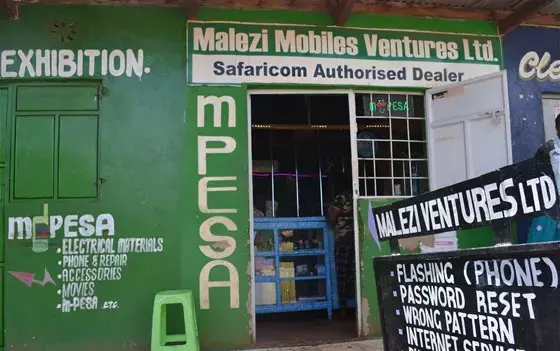
Despite incubators and co-working spaces like iLab and iHub gaining traction in Nairobi, one of the biggest challenges the country faces is technology training for youth who grow up in the cities and outside of them.
Magdaline Sointa, 22, was raised traditionally Maasai, a tribal group in Kenya and Tanzania. She spent much of her childhood years in Narok, a mostly Maasai area located nearly three hours north of Nairobi. She attended high school and now is studying information technology at the Kenya College of Accountancy in Nairobi.
“My dream is to continue with my education,” said Sointa. “As soon as I'm done with this I'll enroll to my degree. My master's. And then, my PHD. It has always been my dream.”
Sointa also dreams of managing her own IT company. She runs a cyber cafe out of a room in her home with her mother and sister. The space allows people in Narok to print, fax, scan e-mail documents, and access the internet.
For Maasai women in Narok County, only one in 15 girls enrolled in primary school continue on to secondary school. Research has shown that Maasai tradition and culture directly correlate with the low rate of girls excelling in education. Girls often drop out of school because of early marriage, pregnancy, poverty, and other factors. But Sointa’s mother, Louisa Kenga, 50, attended school and decided that educating her daughter was important.
“I want to see more girls in technology,” said Sointa. “And show these men that, even as ladies, we can do [it]. And do it even better.”
For youth growing up in Kenya’s villages, access to technology is limited. The government has made various attempts to bring technology into the areas. They attempted to create digital village centers which ultimately failed they say because there wasn't enough disposable income to allow the programs to be self-regenerating over time.
In 2016, the government focused on electrifying 22 thousand schools to improve connectivity in rural areas. And now, they are shifting their focus to an initiative that would create digital schools in Kenya by giving primary school children tablets that are equipped with class curriculum.
“The digi-school is really a school that looks at empowering kids at a very early stage,” said Kyalo. “Now we are saying, let’s give ourselves a 14-15 year window and see what will happen if [children] are exposed early enough, [if] they’re encouraged to experiment, [if] they’re encouraged to be curious and to do all sorts of things with the devices.”
But some local entrepreneurs in Kenya say government support is limited. Owigar created her own business, Juakali, and is now self-funding her company. She said the government needs to do more work that supports entrepreneurs.
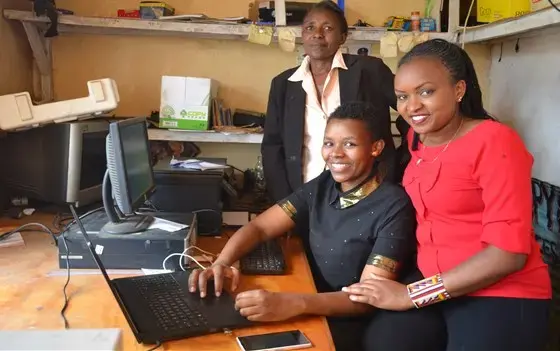
Entrepreneur Ngatia Ndungu started website and mobile app Neutrade last year. The company is a transactional platform that helps small scale merchants like “Mama Mboga,” also known as the women on the street who sell items like plantain, fruit, and vegetables. Neutrade allows these merchants to keep track of their inventory and manage the finances of their business. Ndungu has 200 working devices in cities throughout Kenya and has a waiting list of over a thousand merchants. His team has funded the platform through their own personal investments.
“We had to stop selling because the business outstripped the supply,” said Ndungu. “We’re looking for an asset financing partner to be able to cover the demand. It’s changing slowly, but our biggest problem in terms of startups in Kenya is scaling. When a company gets to a point where you need to scale, then we’re meeting a lot of challenges in terms of accessing funding.”
While funding is a concern for entrepreneurs in Kenya, strides have been made in the tech space.
“It’s definitely been amazing,” said Owigar. “Like, you could say technology is something that people talk about. People see the relevance and the impact of technology. Now it’s not just a nerdy thing. And because of that, people have - are seeing the power of technology. Of how it can change lives.”
As technology in Kenya expands, entrepreneurs and the government alike are hoping to build a thriving sector for the next generation of burgeoning engineers.


